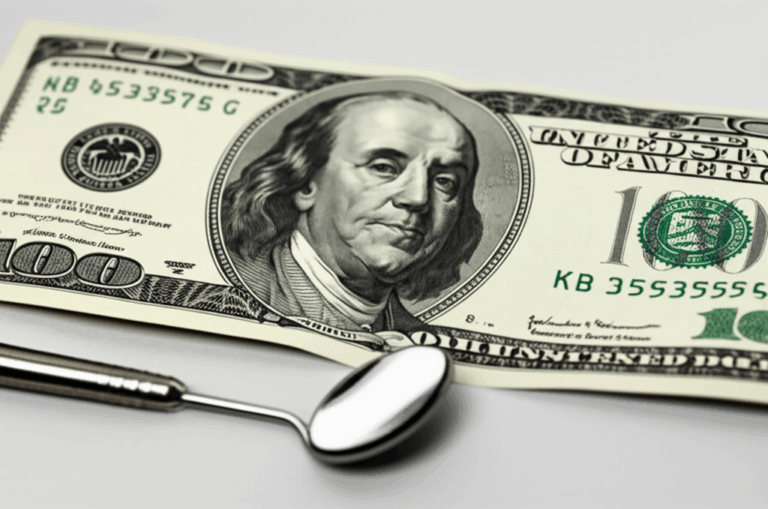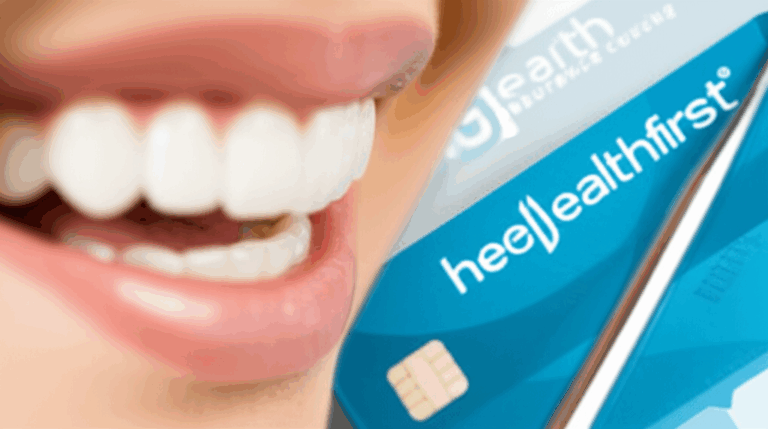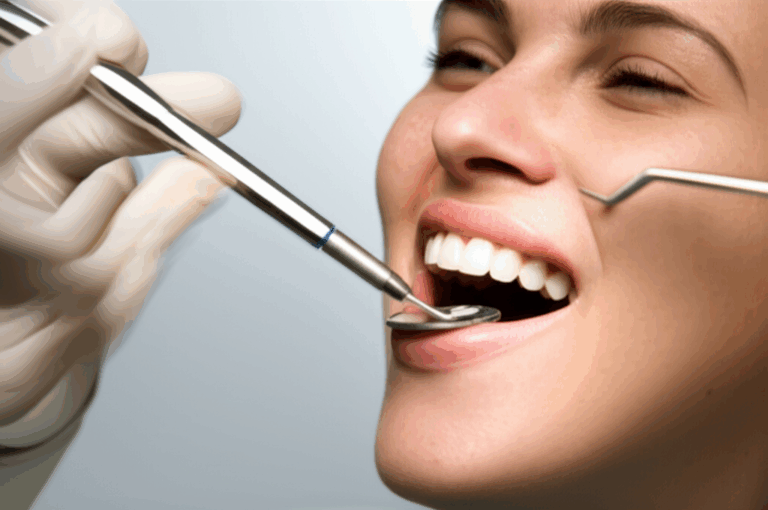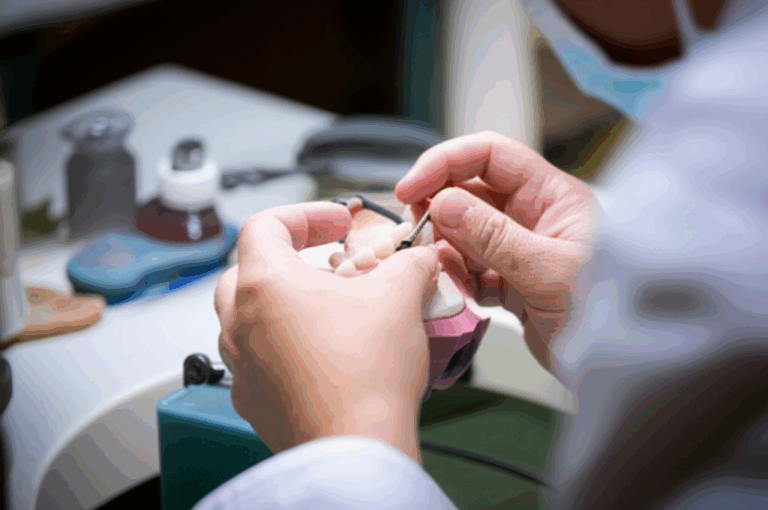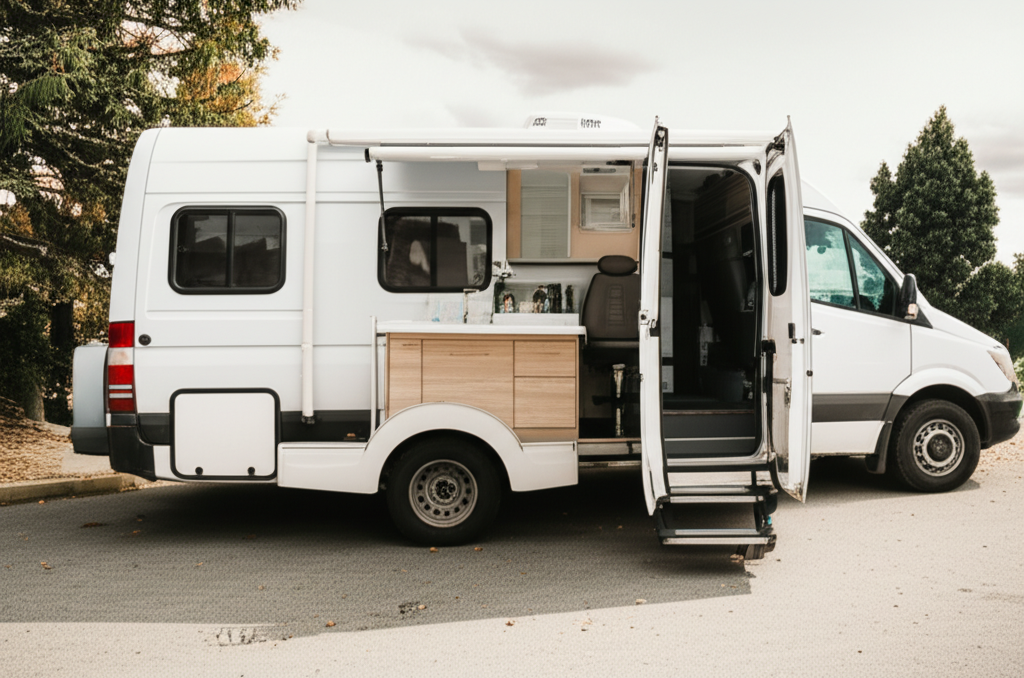
How to Start a Mobile Dental Clinic: Your Step-by-Step Guide to Launching a Thriving Practice
Have you ever wondered how you could help people get dental care if they can’t go to a regular dentist office? Maybe you’re a dentist hoping to start your own business, or maybe you just want to help communities that have a hard time getting dental help. If you’ve wondered “how to start a mobile dental clinic,” you’re not alone—and it’s a great thing to look into.
Starting a mobile dental clinic is more than just putting some dental chairs in a van. This is about caring for others, running your own small business, and doing a lot of planning. Here’s a simple guide to what you need, the basics behind it, and how you can really make a difference in people’s lives.
In This Article
- Introduction: Why Mobile Dentistry Matters Now More Than Ever
- Is Launching a Mobile Dental Clinic Right for You?
- Planning & Research: Building the Foundation
- Understanding Startup Costs and Funding Solutions
- Navigating Legal, Regulatory, and Compliance Hurdles
- Setting Up Your Mobile Clinic: Vehicle, Equipment & Team
- Streamlining Your Operations for Top-Notch Care
- Marketing, Outreach, and Patient Growth
- Tackling Common Hurdles on the Road
- Key Takeaways and Your Next Steps
Introduction: Why Mobile Dentistry Matters Now More Than Ever
Think about this: millions of people in the United States—kids, older adults, families who are far from cities—can’t get to a dentist when they need to. Maybe the closest dental office is hours away, or public buses don’t work well, or it’s just too hard for some people to leave their homes. That’s where mobile dental clinics come in and help.
A mobile dental clinic is just what it sounds like: a dentist’s office on wheels. This can park at a school, a senior center, a church, or even outside someone’s work to bring dental care straight to the people who need it.
Why now? Mobile dentistry is becoming more popular because it’s a lot more convenient, it helps people who are usually left out, and, when it’s done right, it can make money and feel meaningful. More and more, the need for mobile health care—including dental—is growing fast because of the call for easier, community-based care.
If you want to get involved, you’ll be joining a field that’s both a good business and a good way to help people.
Is Launching a Mobile Dental Clinic Right for You?
To be honest: This isn’t a regular dental office job. You’ll need to be adventurous, be willing to do lots of planning, and truly want to help others. Here are some things to think about:
- Do you like working directly with schools, seniors, community groups, or other organizations?
- Do you want something different than the usual dental office?
- Are you ready to handle things like moving the clinic around and keeping up with different rules?
- Does helping people who don’t get dental care easily make you excited?
- Are you okay with a job where you need to adapt a lot?
If you feel good about these questions, keep reading. You’re already on the right track!
Planning & Research: Building the Foundation
So, how do you take your idea and turn it into a real, working mobile dental clinic? Like any business, you start with research and a good plan.
Define Your Vision & Niche
Who will you help? Your clinic might see school kids, seniors in nursing homes, people who work in offices, veterans, or people in small towns. Maybe all of them. What matters is picking who you want to serve and learning what they need.
Do your research:
- Find out where the need is big. Search for areas where there aren’t enough dentists. Right now, over 50 million Americans live in these areas.
- Look at what others are doing. Are there other dental vans around? Are local dental offices already helping?
- Figure out where you’ll take your clinic, and how you’ll get patients—both physically and by reaching out.
Make a Clear Business Plan
Your business plan isn’t just paperwork. It shows you where you’re going and how to get there.
What to put in your plan:
- Quick summary: What’s your idea in one paragraph?
- Your services: Cleanings? Fillings? X-rays? Restorative dentistry? Emergency care?
- Team setup: Will you work alone or with helpers?
- How you’ll get patients: Why will people pick you, and how will they find out about you?
- Money predictions: Plan your startup and the numbers to keep going.
Tip: Write what will make your clinic special. Maybe it’s doing remote checkups or working closely with schools or focusing on older adults.
Understanding Startup Costs and Funding Solutions
Starting a mobile dental clinic costs money up front. But don’t worry, it can be done. Here’s what you’ll need to spend, based on what other people have done.
Main Startup Costs
You’ll spend money on things like:
- The mobile van or vehicle: You can use a van, trailer, or RV. Costs range from about $100,000 to $400,000, depending if it’s new, used, or fancy with custom features.
- Dental equipment: Chairs, X-ray machines, cleaning tools, and maybe a digital dental lab connection for advanced needs. Think around $50,000–$150,000.
- Licenses, permits, and insurance: Plan $10,000–$30,000 for your first year.
- Office tech, supplies, and first ads: Around $5,000–$20,000.
- Money for early months: Don’t forget to save 3–6 months’ worth for paying helpers, buying gas, and more—usually $30,000–$100,000.
Total (roughly): Most clinics start with $150,000 to $500,000.
Getting the Money
Don’t have this much saved? That’s normal. Try:
- Business loans: Banks and the SBA help if you have a good plan and credit.
- Grants: Especially if you help people who really need it. Look for government or local grants.
- Private backers: You can ask people or groups that care about health.
- Crowdfunding: Raise money online—especially if your story is inspiring.
Smart move: Ask local charities or groups who care about health—they might want to help or give support.
Navigating Legal, Regulatory, and Compliance Hurdles
Healthcare is full of rules to keep people safe, so you need to take care of these details.
Register and License Your Clinic
- Choose a business type: LLC, S-Corp, or nonprofit? (Talk to a lawyer or accountant.)
- Get dental board approval: Every state has its own dental rules, especially for mobile clinics.
- Vehicle rules: Register your van or truck, make sure it meets DOT rules, and see if you need a special license.
- Business licenses and local rules: Cities may have extra laws for mobile health care.
Get the Right Insurance
You’ll need:
- Malpractice insurance (for medical mistakes)
- General liability
- Vehicle insurance
- Insurance on your equipment
Stay Up-To-Date on Health Rules
- Patient privacy: Keep patient records safe, even on the go.
- Cleanliness and safety: The same rules for cleaning tools and keeping things clean apply.
- Handle waste: Even on the road, you need to get rid of medical waste properly.
Doing these things shows you’re a safe and honest health provider.
Setting Up Your Mobile Clinic: Vehicle, Equipment & Team
Now’s the fun part—getting your van on the road.
Picking Your Mobile Unit
What will you drive?
- A van: Easier to drive and park in tight spots.
- An RV or bus that’s been changed: More room, good for big groups or rural areas.
- A trailer: Great if you already have a truck to pull it.
A good mobile dental van should have:
- One or two dental chairs to work in
- Running water and working toilets
- Electricity (with a generator or plug-ins)
- Heating, cooling, and a clean spot for tools
Go with a builder who knows medical vehicles. They’ll make sure it’s up to code and safe for X-ray machines and dental work.
Stock Your Clinic
Pack up just like a regular dental office:
- Dental tools and equipment: Delivery systems, suction, X-ray, sterilizers
- Easy software for patient records: Find a digital system that works in a van.
- Supplies: From gloves to toothpaste to masks.
If you don’t have your own dental lab, connect with a trusted partner or a crown and bridge lab so you can still do advanced work.
Build Your Team
The people with you matter!
- Dentist: You or another dentist.
- Helpers: Some states have rules for hygienists and assistants in mobile clinics.
- Training: Teach everyone how things work in a van—especially safety and cleaning.
Streamlining Your Operations for Top-Notch Care
Getting all the basics in place is one step, but you want to make seeing patients easy and friendly.
Organize Your Travel and Visits
- Plan your stops: Choose places with lots of need, and where it’s easy to set up.
- Book appointments: Use simple scheduling software.
- Set up and clean up each day: Make checklists for all the things you need to do.
Give Great Care
- Keep track of patients: Using digital records helps save time.
- Stay clean and safe: Clean tools and wipe everything down.
- Be ready for problems: Know what to do if someone has a health emergency, your car breaks down, or something stops working.
Handle Money and Paperwork
- Take insurance: Many people will use Medicaid, Medicare, or other insurance. Know the codes you need.
- Offer simple payments: Cards, mobile payments, and sliding fees help people get care.
Remember: If patients are happy, they’ll come back and tell other people about you.
Marketing, Outreach, and Patient Growth
Patients won’t just show up because your van is parked somewhere. You need to spread the word!
Build Your Clinic’s Presence
- Easy-to-use website: Make sure it looks good on phones.
- Google Business Profile: Shows up on local searches.
- Social media: Share pictures, helpful info, and tips.
- Your look: Your name and logo should be easy to see on your van.
Get Active in Your Community
- Partner: Team up with schools, nursing homes, businesses, churches, or local charities.
- Join community events: Give free check-ups at fairs or offer talks about brushing teeth.
- Contact the local newspaper or radio: One good story can help you get attention fast.
Keep Your Patients
- Remind people: Send texts or calls to help them remember their appointments.
- Ask for feedback: Listen to what patients say and make changes if needed.
- Grow through referrals: Ask patients to tell friends or family.
Tackling Common Hurdles on the Road
Every journey has bumps along the way. Here are some you might face:
- Planning travel: Figuring out when and where to go takes work.
- Fixing your van or tools: Regular check-ups for your van and stuff inside keep things running smooth.
- Hiring: Not everyone likes working on the road—you want a solid team.
- Extra expenses: Always save for surprise repairs or new equipment.
- Rules: Laws can change a lot from one state to the next. Keep learning about what’s new.
Case Study Example:
“Smiles on Wheels” started with just one van, helping people at work and nursing homes with cleanings. After three years, they had three vans and helped lots more people. They did it by having good schedules, working with community groups, and listening to patients.
Another example is Community Dental Outreach—a nonprofit that uses two old buses to bring dental care to people without homes, mostly using donated money. They succeed by solving problems and using lots of volunteers.
Key Takeaways and Your Next Steps
Starting a mobile dental clinic isn’t easy, but it’s worth it—both for you and those you serve. Here’s the recap:
- Plan and learn: Know who you want to help and how you’ll do it.
- Find money: Mix loans, grants, and partners when you can.
- Follow the rules: Register, get all the right papers, and buy insurance.
- Go on the road: Spend on a good van, good gear, and pick the right team.
- Give great care: Focus on safety and treat every patient kindly.
- Grow your practice: Get the word out, work with your community, and do your best.
- Don’t give up: Be ready for surprises, learn along the way, and don’t be afraid to change things up.
Your next steps:
Remember: You’re not just starting a regular business. You’re changing the way people get dental care. Every visit can change a life and bring a better smile to your community.
If you want to learn even more about new ways to handle dental care, check out china dental lab, or see technology solutions at a digital dental lab. Want to know more about treatments for your mobile clinic? Read about what a crown and bridge lab does.
Your care and effort are the engine of your clinic. With the right knowledge, your mobile dental clinic can bring healthier, happier smiles to every place you go.
Frequently Asked Questions
How much does a mobile dental clinic cost to start?
Plan to spend between $150,000 and $500,000, depending on your van and what you need inside.
Can mobile clinics bill insurance?
Yes, most mobile dental clinics take Medicaid, Medicare, and other insurance; just have a good billing system.
What are the biggest challenges?
Planning trips, keeping your van and tools working, following rules, and getting team members you trust.
Are mobile dental clinics really profitable?
They can be. Some become profitable in about three years—especially with smart planning and joining up with the right groups.
Is this the future of dentistry?
It’s becoming more common. With so many people needing help, mobile clinics aren’t going anywhere.
Want even more help or answers for your special situation? You can talk to a dental business consultant or reach out to groups like the National Mobile Dental Council. Your adventure is only getting started!

